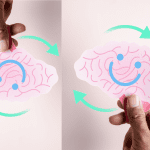How Seasonal Affective Disorder (SAD) can Impact Work and Life
As the days grow shorter and darkness settles in earlier, many individuals find themselves grappling with Seasonal Affective Disorder (SAD), a type of depression that occurs at a specific time of the year, commonly during autumn and winter, especially when time changes back to GMT in the UK bringing shorter daylight. This condition can significantly impact various aspects of home life and career.
Understanding Seasonal Affective Disorder (SAD)
SAD is a subtype of major depressive disorder characterised by recurring depressive episodes during particular seasons. Some call it the winter blues. The reduction in sunlight exposure during the colder months is thought to disrupt the body’s internal clock and affect serotonin and melatonin levels, leading to symptoms such as:
- Persistent low mood
- Lack of energy and motivation
- Difficulty concentrating
- Changes in appetite and sleep patterns
- Increased irritability or anxiety
- Feelings of hopelessness or worthlessness
Impact of SAD on Job Performance
The effects of SAD can significantly impact an individual’s job performance and overall work life. The symptoms associated with this condition can interfere with various aspects of work, including:
- Productivity: Reduced energy levels and difficulty concentrating can hinder productivity. Completing tasks may take longer than usual, leading to feelings of frustration.
- Absenteeism and Presenteeism: Individuals may struggle with increased absenteeism due to a lack of motivation or fatigue. Alternatively, presenteeism, where employees are present at work but not fully engaged due to SAD symptoms, can also prevail.
- Interpersonal Relationships: SAD can affect relationships with coworkers and supervisors due to mood changes, irritability, or a decreased ability to engage in social interactions
- Quality of Work: Remembering, learning new things, concentrating, or making decisions, associated with SAD might impact the quality of work, leading to errors or a decline in performance.
The Role of Laughter to Alleviate SAD Symptoms
Laughter is a natural antidote to stress and can significantly benefit those grappling with the winter blues at work. By participating in even simulated laughter exercises, happy endorphins are boosted, bringing a positive mood and motivation. Laughter in the workplace environment can help combat the effects of this seasonal condition in several ways:
- Mood Enhancement: Triggering the release of endorphins, laughter improves mood and reduces feelings of depression and anxiety.
- Stress Reduction: Laughter decreases stress hormones, thus promoting relaxation and a sense of well-being, counteracting some of the effects of SAD.
- Boosting Resilience: A regular positive, light-hearted wellbeing programme offered enhances resilience, helping individuals to cope better with the challenges posed by SAD.
- Improving Relationships: Using non-verbal language – laughter – fosters camaraderie among coworkers, strengthening relationships and creating a supportive work environment. Without judgment and opinions.
Incorporate Laughter into the Workplace
To harness the benefits of laughter and mitigate the impact of SAD in the workplace, here are some strategies:
- Encourage humour: Create a culture that appreciates humour and light-heartedness. Encourage team positive wellbeing activities or incorporate playful elements into meetings.
- Celebrate Achievements: Recognise accomplishments and milestones with celebratory moments that include humour and laughter, creating a positive atmosphere.
- Designate Break Areas: Create spaces where employees can relax and unwind, perhaps with games or activities that promote laughter and stress relief.
- Humorous Communication: Use humour in communication, whether through emails, memos, or internal newsletters, to inject positivity into the workplace.
Seeking Professional Support Alongside Laughter
While laughter can be a powerful tool in combating SAD, it’s essential to combine it with professional support. Seeking guidance from mental health professionals ensures comprehensive management of SAD symptoms.
Conclusion: Harnessing the Healing Power of Laughter
Laughter Yoga (Laughing Yoga), is a potent and accessible remedy in the fight against Seasonal Affective Disorder. Forming genuine laughter through simulation creates a positive, supportive workplace environment. This can significantly alleviate the impact of SAD on job performance and overall well-being.
Allowing individuals to access positive wellbeing activities indoors in the workplace, enjoying fun, memorable experiences with colleagues, especially during the challenging winter months.
For more information about Laughter Yoga sessions in the workplace or happiness workshops,
please email Sara at happy@seriouslaughter.co.uk
To gather weekly/monthly wellbeing tools join here – https://bit.ly/SLNEWS007







